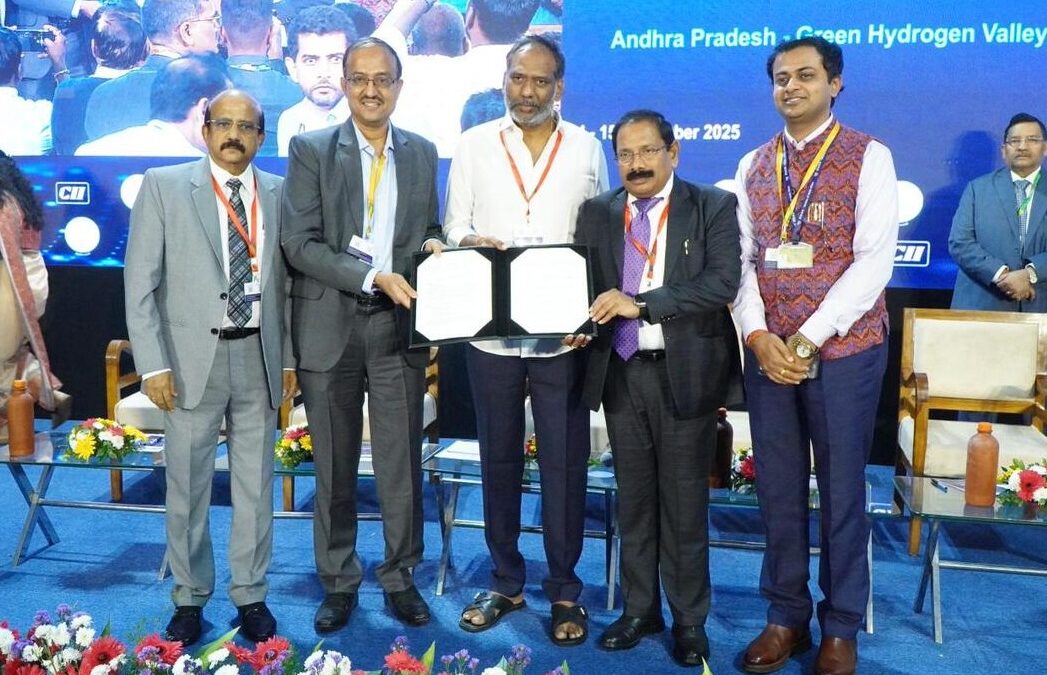SECI Seal Orders for 1200 MWh Storage System and 50 MW Hybrid Project
India advances grid stability as SECI and the Andhra Pradesh government accelerate major storage and hybrid projects.
India has moved to strengthen its clean energy transition, with the Solar Energy Corp. of India and the Andhra Pradesh government finalizing orders for a 1200 megawatt-hour battery energy storage system in Nandyal and a 50 megawatt hybrid solar project.
The deal, concluded during the CII Andhra Pradesh Partnership Summit held in Visakhapatnam on Saturday in Visakhapatnam, deepens the state’s role in India’s shift toward a storage-driven green grid.
Project Approval and Implementation
The Ministry of Power named SECI the implementing agency for the storage project in January. SECI Chairman Santosh Kumar Sarangi approved the plan in October after detailed reviews.
The Ministry of New and Renewable Energy has tracked the progress of both projects to maintain timelines and ensure compliance.
Both projects will follow the CAPEX model, and SECI will invest the full capital requirement. Andhra Pradesh Energy Minister Gottipati Ravi Kumar handed over government orders to SECI leaders Sivakumar Venkat Vepakomma and Rohit Choubey.
Senior officials, including Chief Secretary K. Vijayanand and NREDCAP Vice Chairman M. Kamalakara Babu, attended the exchange.
Push for Grid Stability
The storage project is among the largest planned in southern India. Officials say it will support better peak demand management and deeper renewable integration.
SECI said it aims to help states build stable power networks as renewable capacity expands.
India continues to set aggressive clean energy targets. However, the country needs storage sites to curb curtailment and avoid reliance on coal during dips in renewable energy.
The new system, once built, will add a significant buffer to Andhra Pradesh’s grid and support national market-based operations.
Strengthening India’s Clean Energy Ecosystem
SECI said the orders signal progress toward better energy security. The corporation plans to work with more states to build storage and hybrid assets.
The Andhra Pradesh projects will also support local industry and create engineering roles.
The state has attracted interest from clean energy investors due to its solar potential and growing industrial base. Officials stressed that the new projects will help the state build a more resilient network as demand rises.
Expanding the Manufacturing Base
India’s broader storage plans gained momentum earlier this year when Renewable Energy Minister Pralhad Joshi opened one of the country’s largest battery manufacturing facilities in Bengaluru.
The plant, set up in the Bidadi Industrial Area, has an annual capacity of 5 gigawatt-hours and uses a fully automated cell-to-pack assembly line. The minister called the launch a commitment to cleaner energy and stronger grid resilience.
He said renewable growth needs reliable storage because India adds about 25 to 30 gigawatts of green capacity each year. Without storage, renewable power cannot fully replace fossil fuels during periods of low wind or low sunlight.
Government data shows the country may need more than 400 GWh of storage by 2032. Investments in the sector could reach nearly ₹5 lakh crore.
New central schemes, including expanded viability gap funding, aim to push the development of up to 30 GWh of additional capacity.
Also Read:
SECI Signs MoU for 200MW Solar, 1,000MWh Battery Project in MP
Nirmal Menon
Related posts

Subscribe
Error: Contact form not found.


